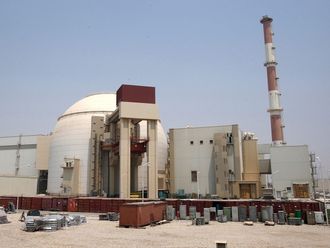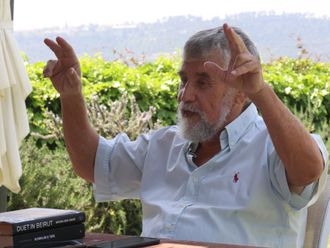UNITED NATIONS: The UN peacekeeping department said in a confidential note to the Security Council that recent increased fighting in two hotspots in South Sudan is having “devastating consequences” for civilians.
The note, obtained late on Monday by The Associated Press, focuses on fighting between government and rebel forces in the Wau Shilluk area of the Upper Nile region that has caused humanitarian organisations to temporarily suspend operations and in Central Equatoria’s Kajo Keji county.
It said most of the civilian population — approximately 20,400 internally displaced people and local inhabitants — fled Wau Shilluk earlier this month and 30,000 or more have fled three areas of Kajo Keiji since January 22 as a result of fighting, insecurity and fear of reprisals.
There were high hopes that South Sudan would have peace and stability after its independence from neighbouring Sudan in 2011. But the country plunged into ethnic violence in December 2013 when forces loyal to President Salva Kiir, a Dinka, started battling those loyal to Riek Machar, his former vice-president who is a Nuer.
A peace deal signed in August 2015 has not stopped the fighting, and clashes last July between supporters of Kiir and Machar set off further violence across South Sudan. The conflict has killed tens of thousands of people and forced 3.1 million to flee their homes.
Adama Dieng, the US special adviser on the prevention of genocide, said on February 7 that Kiir “has made a commitment to end the violence and bring about peace, yet we still see ongoing clashes, and the risk that mass atrocities will be committed remains ever-present”.
The peacekeeping department note, dated February 7, said fighting broke out near Wau Shilluk on January 25 between the rival factions. It said Kiir’s SPLA forces fired multi-barrel rocket launchers, mortars and heavy machine guns across the Nile directly opposite the town of Malakal, targeting positions close to Wau Shilluk.
The UN peacekeeping force relocated 16 aid workers from Wau Shilluk and all emergency services including clinics and water provision stopped on February 3 when fighting resumed and local staff fled, the note said. UN humanitarian air flights to Malakal have also been stopped since January 25.
In Kajo Keji county, the peacekeeping department said, fighting between the SPLA and opposition forces started on January 22, reportedly killing seven civilians, and continued on January 23 with two additional casualties. Thousands fled to Uganda, where humanitarian organisations reported the arrival of 28,553 South Sudanese refugees in the last four days of January.
“Humanitarian partners are also reporting that those arriving in Uganda continue to cite violence and indiscriminate killings of civilians, sexual violence, and destruction of livelihoods,” the note said.












